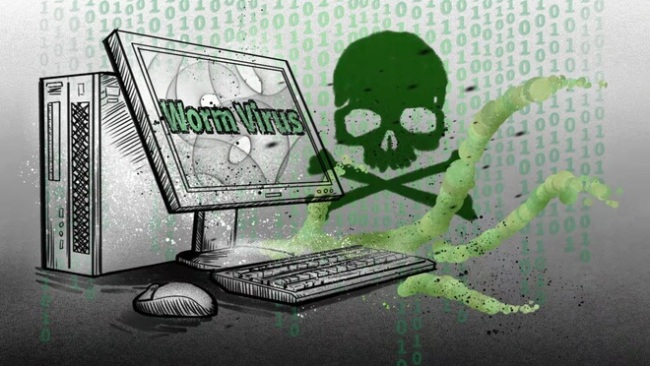American cyber hegemony: Science-fiction turned into reality

With the Command being elevated to an independent unified combatant command –the 10th Fleet, the U.S. cyber army was equipped with the capability to carry out the full spectrum of military operations. Additionally, the U.S. has conducted seven Cyber Storm exercises since 2006, where an increasing number of cyber security companies and private sector organizations were incorporated into national cyber military operations, forming a "cyber kill chain."
America's over 10 years of relentless and unchecked expansion of its cyber forces has drawn worldwide criticism. It further debilitated the already fragile international cyber network and triggered a global cyber arms race. It not only accelerated the militarization of the global cyberspace, but also significantly obstructed effective governance of the cyber domain by international actors.
Third, the U.S. launched massive cyber offensives, opening the Pandora’s box of cyber warfare. The American government and military are dedicated to the development and hoarding of cyberweapons, and never hesitant to apply them. Ever since the Stuxnet computer virus was exposed, the U.S. has been using offensive cyber operations as a unilateral deterrent to flex its cyber muscles. According to The New York Times exposé, the U.S. has planted malicious code in Russia's power grid since at least 2012. In early 2020, Chinese cyber firm Qihoo 360, following the leads revealed by WikiLeaks, discovered the Central Intelligence Agency (CIA) had spent 11 years infiltrating and hacking multiple Chinese government departments.
Bent on leveling up its cyber capabilities of attacking key infrastructure, the U.S. has not only turned horrible plots in science-fiction into reality, but also spread the horror across the globe. In 2017, ransomware WannaCry and NotPetya wreaked havoc across the world after hacking a huge number of government agencies, companies and research institutions, damaging their crucial data. The malware is widely believed to have been engineered by hackers based on one of the U.S. National Security Agency's (NSA) cyberweapons.

Fourth, the U.S. constantly conducts cyber-spying activities in the name of national security, building an espionage empire that threatens the entire world. Historically, stealing other countries' secrets to gain so-called intelligence advantage has been an important instrument for the U.S. to safeguard its global hegemony. The cyberspace and technological upgrades have offered the country new opportunities. Washington carries out cyber espionage through various technical means, directly entering actors' servers and databases to obtain data, or secretly and remotely accessing information, or seizing overseas data via fibre optic cables and digital supply chain.
After Edward Snowden revealed PRISM, a surveillance program run by NSA since 2007, the U.S. did nearly nothing to stop its mass espionage activities. Quite the contrary, several members of the U.S. intelligence community such as the CIA and Department of Homeland Security joined the spying team, collecting digital intelligence across the world even more boldly.
The U.S. also teamed up with its Five Eye allies to establish a surveillance program coded ECHELON, setting up surveillance units at Sugar Grove in North Carolina, Yakima in Washington and two of Britain's air bases. With numerous dish antennas at ground stations intercepting signals of international communications satellites, over 134 countries' phone calls, telegraphs and computer communications through the satellites are all within the U.S.' reach.
Packaged as an attempt to protect national interests, America's deep-seated distrust in other countries has subjected its allies, including the Five Eye partners, to its surveillance efforts. Since 2009, the NSA has spied on 122 heads of foreign states and stored collected information in a database exclusively for them, where the number of reports on German Chancellor Angela Merkel alone is over 300. This way, intelligence transparency between the U.S. and the world is just a one-way street.
The U.S. aggressively wields its power to defend its advantages in the cyberspace. In the global cyber village where weal and woe are commonly shared and all countries are connected, the U.S. acts like an outsider that always goes the opposite direction. What it does to protect its security – namely excluding others from the cyberspace and boycotting certain goods based on nationality – is not only against the open nature of the cyberspace, but also unlikely to build real security. What it can do is causing endless chaos and conflicts in an area that is crucial to the future of humanity.